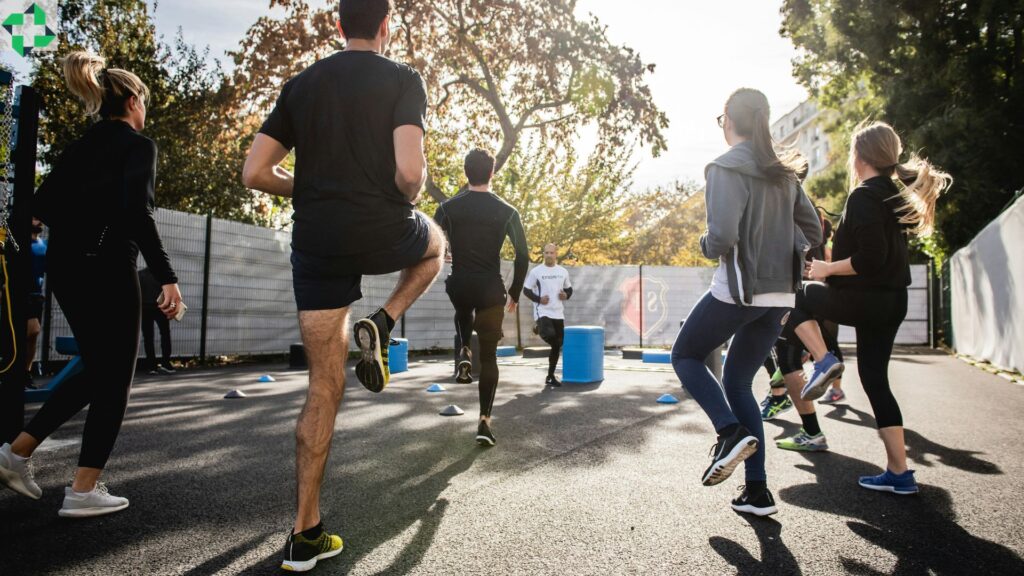Losing weight is a challenge many people face. Sometimes, diets and gyms don’t offer the structure or motivation needed. That’s where weight loss camps come in. These programs provide a supportive environment for sustainable and healthy change.
What Is a Weight Loss Camp?
A weight loss camp is a structured program focused on physical fitness, nutrition, and behavioral change. It often includes group activities and one-on-one coaching. These camps offer a temporary but intense setting for people serious about losing weight. Most programs last from a few days to several weeks. Some camps even offer online options or hybrid models for added flexibility.

Weight loss camps are different from ordinary fitness centers. They provide immersive experiences that address the physical, emotional, and psychological aspects of weight loss. Most programs are goal-oriented and have measurable outcomes.
Who Should Join a Weight Loss Camp?
Weight loss camps are ideal for anyone struggling with long-term weight issues. They serve both adults and teenagers. Camps are suitable for people who need more accountability. They are also a good fit for those with health issues linked to obesity. Anyone wanting to kick-start a healthy lifestyle can benefit.
If you’ve tried diets, gym memberships, or personal trainers without long-term results, a camp could help. It offers a break from your usual routine and helps reset unhealthy habits. Many participants are looking for a mental refresh as much as a physical transformation.
Benefits of Attending a Weight Loss Camp
Weight loss camps offer many benefits beyond shedding pounds. First, you receive guidance from professionals in fitness and nutrition. You build healthy habits in a distraction-free setting. Camps help improve mental well-being along with physical health. They also build self-discipline and boost confidence. Group support adds motivation and a sense of community.

Camps are known to reduce stress levels. Structured schedules and group activities foster a sense of belonging. Many camps also include workshops on mindfulness, goal-setting, and emotional eating. These tools can help you handle challenges even after returning home.
Types of Weight Loss Camps
Adult Weight Loss Camps
These programs focus on helping adults build lasting lifestyle changes. Activities include cardio, strength training, and guided meals. Some include medical screenings and stress management workshops.
Teen Weight Loss Camps
Teen camps focus on creating a positive body image. They include group therapy, physical activities, and lessons on self-esteem. Peer interaction plays a vital role in boosting social skills and confidence.
Fitness Retreats for Women
These camps offer women-only environments that focus on physical fitness and mental wellness. They usually include yoga, clean eating, and personal coaching. Women often feel more comfortable sharing experiences in same-gender settings.
Luxury vs Budget Camps
Luxury camps offer spa treatments and gourmet meals. Budget camps focus more on basic training and essential dietary guidance. Both options aim for effective results. Choosing depends on personal preference, budget, and desired amenities.
What to Expect at a Weight Loss Camp
Daily Schedule
A typical day includes morning workouts, healthy meals, and wellness workshops. Activities vary by camp but follow a routine to keep you on track. Some programs include meditation, journaling, or hiking in nature.
Facilities and Accommodation
Facilities range from rustic cabins to luxury resorts. Most include gyms, outdoor trails, and communal dining areas. Some camps have indoor pools, saunas, or massage services to promote recovery and relaxation.
Support and Aftercare
Camps often offer post-program support. This includes coaching calls, progress tracking, and meal plans to continue your journey at home. Ongoing support increases the chances of long-term success.
Aftercare may also include online communities, newsletters, and access to trainers. These tools help maintain accountability and momentum.
Top Weight Loss Camps in the USA
Many top-rated camps operate across the country. Examples include Wellspring Camps, Fit Farm, and The Biggest Loser Resort. Each camp has unique offerings, locations, and price ranges. Research each to find what suits your needs best.
Green Mountain at Fox Run, based in Vermont, focuses on women’s health and emotional well-being. Live In Fitness in California tailors programs to individuals using data-driven plans. Hilton Head Health in South Carolina offers a wellness resort experience.
How to Choose the Right Weight Loss Camp
Start by setting clear goals. Do you want fast weight loss or long-term habit change? Check the camp’s success rate and staff qualifications. Consider the type of program—group-based or personalized. Location and budget also matter. Look for reviews and testimonials from former attendees.

Ask questions about the daily schedule and available amenities. Consider whether you prefer a co-ed or gender-specific environment. If you have medical conditions, confirm the availability of healthcare professionals.
Real Success Stories from Weight Loss Camps
Many people have found success through these programs. Some have lost over 50 pounds and maintained it for years. Others have reversed health issues like diabetes or high blood pressure. Stories often highlight increased confidence, energy, and mental clarity. These examples show that real change is possible.
For example, Sarah, a 35-year-old teacher, lost 60 pounds and kept it off for three years. She credits the camp’s structure and continued support for her success. James, a former athlete, regained his health and confidence after gaining weight due to injury.
FAQs About Weight Loss Camps
How long do weight loss camps last?
Programs can run from one week to several months.
Are meals included?
Yes. Camps provide healthy, calorie-controlled meals designed by nutritionists.
Is the weight loss permanent?
Long-term success depends on continued lifestyle changes after the camp ends.
Do camps offer medical supervision?
Many camps have certified trainers, dietitians, and sometimes medical staff on-site.
Can I go alone?
Absolutely. Many attendees join solo and make friends quickly.
What should I pack?
Bring workout clothes, comfortable shoes, toiletries, and any medications you need. Most camps provide a packing list.
Is it suitable for seniors?
Yes. Many camps offer low-impact activities suitable for older adults.
Conclusion
Weight loss camps offer a focused, supportive environment for people serious about change, combining physical training, healthy eating, and emotional support. Whether you need to jumpstart your journey or break a plateau, a camp can help—and by filling out the Ciranox sign-up form, you take the first step toward professional guidance, peer motivation, and a path to long-lasting wellness that goes beyond temporary fixes.




